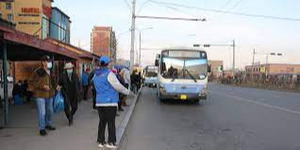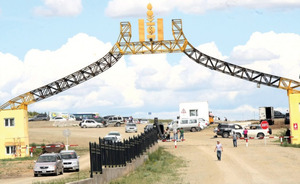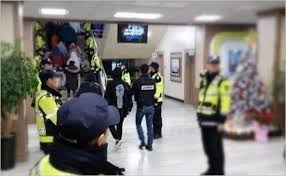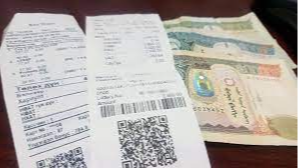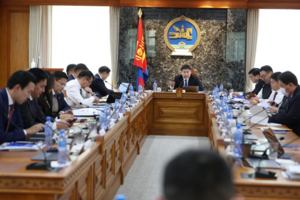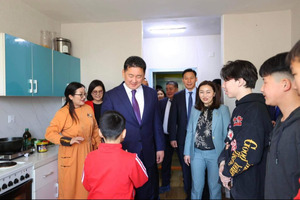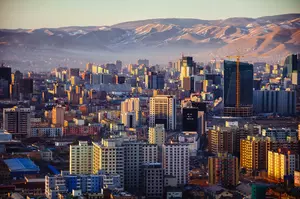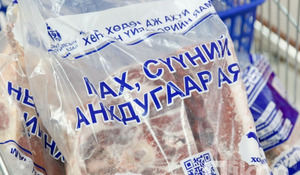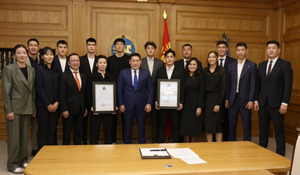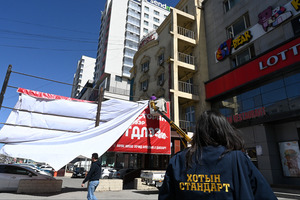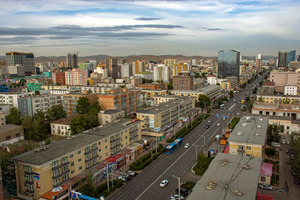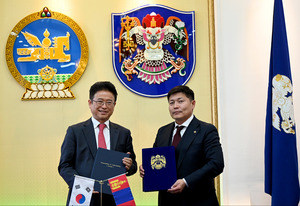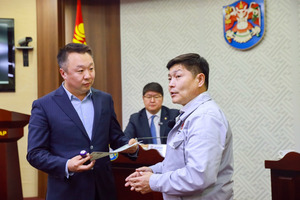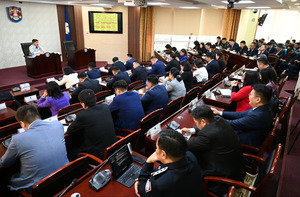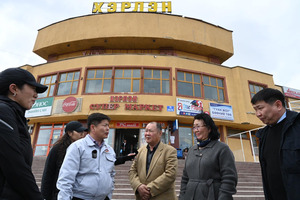We had interview with Mr. Balgansuren Batsukh, Chairman& CEO of the Communications Regulatory Commission (CRC) of Mongolia, on activities of the commission, regulatory frameworks of the Information Communication Technology (ICT) sector and its future trend.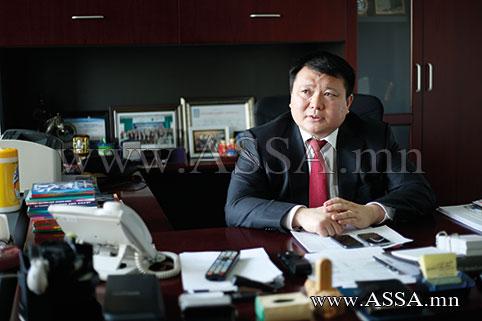
-I would say that information, communication technology is one of the rapidly growing sector. In that sense, people have been using smart devices and internet widely, which give people chance to connect each other without any boundaries. Therefore, it would be interesting if you could share your personal thoughts about this invisible connections and importance of information, communication technology in our lives today?
First of all, I would like to thank and greet to all people who are reading this interview. Additionally, I would like to express gratitude to editorial council of your magazine for introducing information, communication technology organizations’ activities to the public.
It is definite that information, communication technology sector is one of the most rapidly developing sectors in the world and Mongolia is walking hand in hand with this development as well. There was a time that we used to send hand written letters by post and connect with our families and relatives by our neighbors who had telephone at their home. It was very recent, just about two decades ago and in that times understanding of communication was limited with telephone networks and post cards. In other words there was only about telecommunication issues. But today understanding of communication has changed and it covers more extensive and highly complex issues. People started to use information and technology to connect each other and this change created Information, communication technology sector from telecommunication. Therefore, ICT sector is highlighted one of the strategically important sectors.
Naturally the humanity has been living in the world that they have close connection to the earth and the nature, however; in 21stcentury there have been created cyberspace which we could say “new or second world” where we are living in nowadays. So this makes us feel that we are living in two different world in the same moment. In other words, people need information as they need air and it has become valuable as water and time.
Nowadays, when electricity broke, people initially worry about if their phone was charged or if there is any access, connection to internet or any devices to contact each other. Before people used to worry on shortage of access and facing darkness. This shows us how information, communication and technology has become important for our lives.
Even though people give importance to network access, mobile phones and smart technologies, they don’t care much about importance of telecommunication, radio spectrum, network and telephone numbers which are key and headstone things for information, communication technology sector. Think about natural resources; although we say that we have lot of resources such as gold and copper, but these are scarce resources and that’s why we pay more attention on mining. Similarly, radio spectrum and numbers count as scarce resources and the proper exploitation and effective management of these resources require appropriate regulation. So that’s what the CRC regulates under the relevant laws of Mongolia.
-Could you please tell us, what are achievements we got in information, communication technology sector?
It would be more authentic to take answer from the public or individuals who use this sector’s technologies and who take information, communication services rather getting my opinion. However, as a consumer, I could say that all types of devices, technologies and services, which are introduced in other development countries are in the ICT sector of Mongolia.
About 20 years ago, mobile technology was first introduced in the market and mobile phone was luxury reliance. Yet it has changed now. Currently, four mobile operators playing in the market providing services to more than 3 million active subscribers within more than 20 types of services including voice, message and data. All these performance show us the mobile penetration of our country has reached at the same level of developed countries of the world. Moreover, subscribers are receiving the world top contents by IPTV and digital cable TV technologies. Here, I would like to emphasize that we are providing services through to the latest advanced technologies according to the international standards with very low prices compared to the other countries. As a result, I can say there are certain achievements in ICT sector of Mongolia.
Since our organization is responsible for enforcing implementation of relevant Laws and national programs of the sector, we mostly concern on license holders’ activities to ensure whether they have good market and competition environment and consumer protection issues as well. Therefore I usually prefer to address things from the perspective of regulator in the ICT sector.
-As you said, how is regulatory environment in Mongolia and its future trend?
-International Telecommunications Union /ITU/ currently has a membership of 193 countries and Mongolia joined in 1964. The CRC is the one of membership organization of 566 members who are ICT regulatory bodies and network service providers. ITU organizes the regulatory roundtable meeting annually with leaders of regulatory organizations of the world. Appeals from this meetings, and recommendations giving from the ITU are constantly changing due to the ICT sector development and its focus now shifted to network access and data from traditional voice and message services.
One of the purposes of ICT sector organizations around the world is to increase and enhance the penetration of fixed and mobile high speed broadband. Within this, high-speed data services are expected and it will be able to receive a variety of services through internet protocol based network and wire or wireless infrastructure. To clarify that, internet protocol based network has become main infrastructure to take services rather than being service itself.
About the future trend, it is hard to define or describe development of rapidly changing sector where many new services, technologies, hundreds of applications are being introduced and changed in every day, each moment, and new information is available for every seconds. This rapid evolution requires regulation for converged and bundled market services rather than single service and single technologies. Besides, due to penetration of the next generation 4G, 5G etc.., there is a necessity to create an environment for efficient use of radio spectrum acquisition and redistribution. As a result, we should create independent legal and regulatory environment which should be technology neutral.
-Incidentally, what we have to do in Mongolia? In addition, there is an adhered policy to implement for the Government in the ICT sector and what are the main guidelines to run your activities in 2014? And what are the results?
We, the CRC has been concerning on new regulatory environment and through to the recommendations and appeals issued by ITU, and the adhered policy in the ICT sector of Mongolia, we took consulting service on project “Renewing the vision-Mongolian communications licensing and regulatory policy in an era of convergence”.
Since end of the year 2012, we have been implementing activities to renew regulatory papers, terms and conditions, directions and classification of licenses and its fee and cycle of internal activities and structure. In 2014, we are aiming to establish online license registration and information system of license, certificate and registration and its related information. The main purpose of the online system is to serve to public, individuals and organizations without any interruption or bureaucracy.
Information Technology, Post and Telecommunication Authority (ITPTA) has announced this year as a “Legal reform” year of the ICT sector. Within this framework, the CRC is cooperating with related organizations to amend the key laws such as Communications Law, Radio Wave Law and Postal Law considering renewed information, communication services and technologies and issue of cyber security, child protection, data protection and so on.
Within the aim of prompt and transparent services of license, the CRC has restructured its internal structure and processing. In addition, we monitor the activities and quality of services of license holders and supervise their technical performance according to the laws and regulations. Although we were criticized, it’s our duty to monitor in a phase the activities of license holdersto increase their quality of services, technical performances to create fair competition environment; as a result to provide good quality of services to the public with more choices.
On the other hand, in order to protect the interests of the license holders, we have been organizing seminars and trainings regularly. Particularly, we concern on the right and efficient use of radio spectrum or we say spectrum management, its monitoring and prevention and protection of interference, and if there is any interference to address the issue. The interference of radio spectrum directly gives negative impact in the quality of service. Today, there are two monitoring stations are actively working in Mongolia. In addition, some of you may already know that the CRC monitor the exploitation of radio spectrum with comprehensive equipped monitoring vehicle and special portable monitoring system.
-Generally, all information, communication services are based on radio spectrum, are they?
-The atmosphere is the most important factor of our existence. Similarly, we could say that radio spectrum is the main driver of the rapid development of ICT sector in the cyber space. All services we could receive is based on radio spectrum. The coordination of radio spectrum defines as unified regulation internationally. The CRC is responsible for the allocation, planning and monitoring the exploitation of radio spectrum in Mongolia. As I said before, radio spectrum is one of the scarce resources, thus the CRC distributes this resource with efficient planning, allocation and regulation to deliver the high quality services to public. The information, communication services we use in our daily life such as mobile, WiFi, TV and Radio broadcasting and satellite communication all receive utilizing radio spectrum.
When the CRC drafts its further action and policy always concern the distinction of Mongolia such as sparse population, vast territory of land and nomadic culture, and to provide the sufficient information, communication services to people.
-You mentioned about the amendment of Communications Law and Postal Law. Parliament has approved the amendment of Postal Law during its spring session, could you please clarify about this?
Working group with Cabinet Secretariat of Government of Mongolia, General Customs Department, General Department of Taxation and the CRC jointly established and made discussion on amendment Postal Law between the post service providers and the amendment has presented at parliament last July. The parliament has approved the amendment on Custom Tariff Law and Value-added tax (VAT) Law during the spring session, and this amendment was one of the most important modification in legal environment of the international post service during last 10 years. In frame of the modification, custom VAT is not accounted for on the parcels if parcel value is not more than 10 times of minimum labor wage and if notebook value is not more than 30 times of minimum labor wage. The amount will increase when minimum labor wage increases. The law will be implementing from 1st January 2015. I think, on one hand this decision was good fit in public interest and on the other hand, it could grow the efficiency of custom and tax organizations’ operation.
-Mongolia has successfully started transition to digital TV technology. Although it implemented in short term, I believe there were made certain adjustments accordance with the transmission and also it’s told that transition to digital TV technology increases the usage of radio spectrum. So about all these…?
-The decision and guidelines for the transition from analogue to digital TV broadcasting approved by ITU in 2006. In frame of this implementation work ITU was appealed governments to support this decision. Then in 2010, the Government of Mongolia was approved national program and it has implemented successfully. For the transition of digital TV broadcasting in Mongolia, we made decision to choose DVB-T2 European standard as an appropriate standard. In addition to that, as an implementation of national program ITPTA installed fixed transmission stations for digital TV broadcasting technology in 361 rural areas within investment of state budget, and 10 stations installed in Ulaanbaatar city within investment of the city. The CRC has been responsible for working with research groups, present the reports to relevant organizations and introducing operational works to the public. Besides this, one of the important thing that the CRC has been doing is that type approval. To clarify that we are issuing type approval certificate for the set top boxes if they fit in our standards and meet our requirements. Until now, we have approved and provided certificates to 7 retailers, and if you would like to get detailed information you can find it from CRC website. (www.crc.gov.mn)
We planned to finish this transition to digital TV broadcasting system by switching off analogue system which we are currently using with digital broadcasting technology on 1st January, 2016. This would be our opportunity to use released spectrum for the LTE which we need for the future development of ICT sector.
-We all know that there has been created legal environment for mobile number portability service. Do you think there will be lose out for operators and what kind of impact it could create in the society in terms of fair competition?
-First of all, to give basic information I’ll explain what mobile number portability service is. Number portability service is the service that subscribers will have more than one choices to change their mobile operators without changing their mobile numbers. This service will create an opportunity to public to choose mobile operator who offers high quality and reliable services. To implement this service, the working group has established and drafted plan. The working group is responsible for establish clearing house, make calculation for additional investment for operators, draft an applicable technical solution, after all these stages number portability service is expected to be tested.
One of advantages of this service is mobile operators will have an equal chance and opportunity to compete regardless when they introduced in the market. It means, there will be opportunity to the public to choose mobile operator who provides high quality of service, coverage and customer oriented services. From the other side, according to internationally used method for calculation of benefit for subscribers would be more than 20 billion tugrugs in a year. Here we are talking about direct and indirect all types of benefits; for instance, there is always some monetary cost when costumer changes mobile operator like fee for getting new mobile number, price of mobile phone, registration fee, contract fee, deposit and prepaid card fee and so on. On other hand, there is some very valuable things impossible to measure with monetary cost such as human life and health. For example, let’s think one businessman, he has to spare some money on changing his name cards when he changes the mobile number and this is not really efficient expenditure. We all know that when we change our mobile number, there is always trouble to contact with our colleagues, friends or at least we have to inform all of them our new number in order to be get connected. So all above mentioned benefits considered all this costs.
Facebook and Twitter, such as social networks have become real space for freedom of expression, publishing and speech; however, some abuses and defames are observed in this social networks at the same time. In general, what are the considerations of the CRC for this social networks and websites?
The duties and functions of the CRC are stated in the Communications Law, and we don’t have right to monitor or ensure any personal communications or connections in social networks. Although The Universal Declaration of Human Rights and international conventions provide people freedom of speech and freedom of expression, to exercise this right it requires from individual to respect other’s right and dignity. It means, freedom of speech and freedom of expression consider interest of audiences and readers who are receiving the information. Therefore, we should point to our duty to respect someone’s dignity when we talk about freedom of speech and freedom of expression. Especially, expression in cyber space and social networks is not only issue in Mongolia but also it is global issue.
-The CRC denied access to foreign adult sites under the Law, however there was criticism saying that we are following some other strictly ruled countries. In generally, how many countries who deny access to adult sites? Is there any possible regulation except blocking access? Is there any statistic numbers of users who access to foreign adult sites from Mongolia?
There were many criticism and comments about restriction of foreign adult sites through to the internet space and social networks. Organized Crime Squad of General Police Department of Mongolia requested to restrict access to adult sites in certain period of time due to the reason that these websites were under the investigation process related criminals and suspected. The CRC did not denied to access to adult sites and it is impossible to block the all sites. And, there is no statistic number of who access to foreign adult sites from Mongolia.
-There is still some access to child pornography site and blog, for instance, some service providers blocks its adult channels or made available it when customer pay for it. Is there any regulation for that?
-We are building new website for youth, parents and teachers which includes information about how to protect themselves in cyberspace. This website will be ready soon. Recently, there is no specific regulation to struggle with pornography issues both in broadcasting and Internet space. Currently Criminal Law and Pornography Law are the main laws to solve this type of issues. In order to support struggle against pornography, one of initiatives of the CRC is this website. However, we require from service providers to have software which is able to monitor adult contents to protect youths and children. We are also translating ITU recommendations to parents, teachers and facilitators, about how to control and monitor the access to internet of their children. It’s important to parents, teachers and youths having awareness of this child protection and information security related issues.
However, compared to the websites or social networks, for the TV broadcasters, there is more possibility to set the legal constraint to protect interest of public. On the one hand TV broadcasting is powerful weapon that can affect and influence to public view, personal behavior, characteristics and it can also impact both in a good and bad ways. On the other hand, it also count as a special facility since is uses scarce resource – radio spectrum. Therefore, they have to have responsibility to the public and to protect youth from inappropriate contents must be included in their responsibilities.
As related to this, the CRC has renewed terms and conditions of TV broadcasting service providers and there are mandatory provisions such as putting signs of age classifications on movies, prohibited to provide adult movies during the day time, and also prohibited to provide movies, videos, voice or video clips which are offensive, violent, showing method of committing a crime, promoting illegal products, upbringing of children and young people and have negative impact on moral violence etc.,
Furthermore, we, as a sector, are now working on draft of Broadcasting Law and there are many discussions have been made on concept of the law. When law adopted, the issue of protection of youth from harmful content would be officially legislated and there would be more proper regulation environment.
The Cybersecurity Forum was held in last May. Unfortunately, few months after this forumall access to website swhich listed in Data Center was blocked nearly for a day. Some of the sites were hacked and some people summarize that showedcybersecurity level of Mongolia. Until now we could not find hackers. What is your opinion on this issue?
The 5th Cybersecurity Forum of Asia-Pacific Telecommunication (APT) was orgazined by APT, ITPTA and the CRC from 26-28 May in Ulaanbaatar and delegates from more than 20 countries were participated. The objective of the forum was to share information on practical experience, knowlegde on combating cybercrime, enhancing cyber securuty, countering spam activities and others new threats and child online protection etc.., The cybersecurity issue covers all above mentioned challenges and public sectors, private sectors and customers should cooperate to enhance cybersecurity environment.Development of technology and new services of telecommunincations require cooperation of public sectors, private sectors and consumers on cyberspace issue such as information security and data security. In frame of this issue the CRC intiated to cooperate with foriegn countries and we are planning to organize several seminars and trainings to share experience with professionals and to introduce basic understanding to the public next year.
-There are too many TV channels in Mongolia compared to its population. This means that market share of TV broadcasting sector and its investment will decrease, and as a result, audience, individuals are suffering by receivingraw, not qualified, true and good sourced information. What kind of policy does the CRC have on this issue and currently how many TV broadcasters in Mongolia, especially in the capital city Ulaanbaatar?
As of today, there are 17 TV broadcasters including Mongolian National Broadcasting TV, 50 Cable channels in Ulaanbaatar and there are 72 TV broadcaters in rural areas. I agree with your statement that there are too many televisions and cable channels which affect to the development of this sector negatively. We all know that advertisement is the main revenue of TV broadcasters and because of this market share rate it’s hard to produce good qualified contents with today’s advertisement revenue. Then it touches back again audience right to get proper and qualified information.
Coherent with the technological development and evolution, there have become many TV broadcasters. The CRC was began to regulate broadcasting in 2011 and due to above mentioned difficulties it terminated license for free to air TVs in Ulaanbaatar and has been providing license only for cable channels. Since then we made some modifications in license regulation and requirements and conditions for TV broadcasting to make numbers and classification of license fewer, licensing procedure simpler, without bureaucracy and the issuing license was enclosed about for a year, from 3rd quarter of 2012 to 3rd quarter of 2013.
Unfortunately, it is still not proper enough on producing good, qualified contents to the audience since not all license holders are licensed on market demand. Of course, there are many things to improve in this sector. For instance, the accomplishment of license regulation and requirements and conditions are not satisfied, especially on technical standards, content of program is incompetent, and 30 percent of total cable channels has not been running their activities. Thus, for all this reasons and related to the transition to digital TV broadcasting technology, licensing for cable channels has been enclosed in urban and rural areas since May 2014. Within the framework of improvement of legal environment of broadcasting, the CRC was cooperated with experts from the Asia Broadcasting Union. Experts suggested to do auction for the license and by creating appropriate competition environment and enforcing the law and regulation, to decrease the number of players in the market.
-What policy does the CRC have on customer protection in the cyberspace?
-Under the Communications Law and Licensing Business Entities Law, the CRC provides licenses to some entities of the ICT sector. To support the activities of entities we license them and sign contract stated to follow for the certain terms and conditions with all license holders. In those terms and conditions, we also consider consumer protection issues for instance; an entity serves for more than 20000 customers must have 24 hour call center service.
-I’ve heard that there is a study result that tells about CD sale shops will totally out of the market after 10 years. The reason is that today everyone can download songs, videos, movies and almost all other things from the internet. In this case, what is the legal environment to compete with intellectual property theft and what would be the level of responsibility?
-Since the question was related to the CDs, here I want to make clear of that the CRC is not responsible for the any CD and video recording shops. The duties and functions of the CRC is to make regulation on service providers who use information, communication networks. About intellectual property theft issue, we do contribute by cooperating with Mongolian Intellectual Property Office to monitor and enforce the implementation of laws, regulations and terms and conditions of license and regularly organize the seminars and trainings.
The CRC doesn’t have a right to decide or judge the complaints about copyright, content and other issues engaged with intellectual property protection directly under the law. Thus, if broadcasters, free to air TVs or cable channels are providing contents that violating to Copyright law, or related laws, Mongolian Intellectual Property Office is authority that responsible for those issues. So the CRC takes activities to eliminate the violations to license holders based on national inspector’s summary. Basically, even though the CRC issues licenses for broadcasters, channels, there is no direct legal possibility to monitor and ensure on whether they are providing copyrighted contents or not. By looking other countries regulators experiences, it is better to legislate the authority to terminate licenses and enclose programs or movies if there is any violation to copyright by Broadcasting law in order to support implementation of Copyright law.
-It is impossible to discuss every issues at one time, so therefore let me end our interview. If there is any questions I didn’t ask?
-Of course, everything has its own time and certain limits, so let’s end our interview here. I’m worried if the interview was bored with my repetitious talk.
At the end, I would like thank to the Intellectual Property Office, General Police Department, Agency of Standardization and Metrology, State Inspection Agency and General Customs Department and all other organizations and NGOs and individuals who always contribute and support our activities.
In general, our information, communication technology sector covers a wide range of services which reach every organizations and each individual at every level of society, and I would like to say that the CRC will always work with all of them in order to develop fair competition environment and to deliver high quality of services which meet public expectations.
Thank you very much and wish you and your colleagues success.
